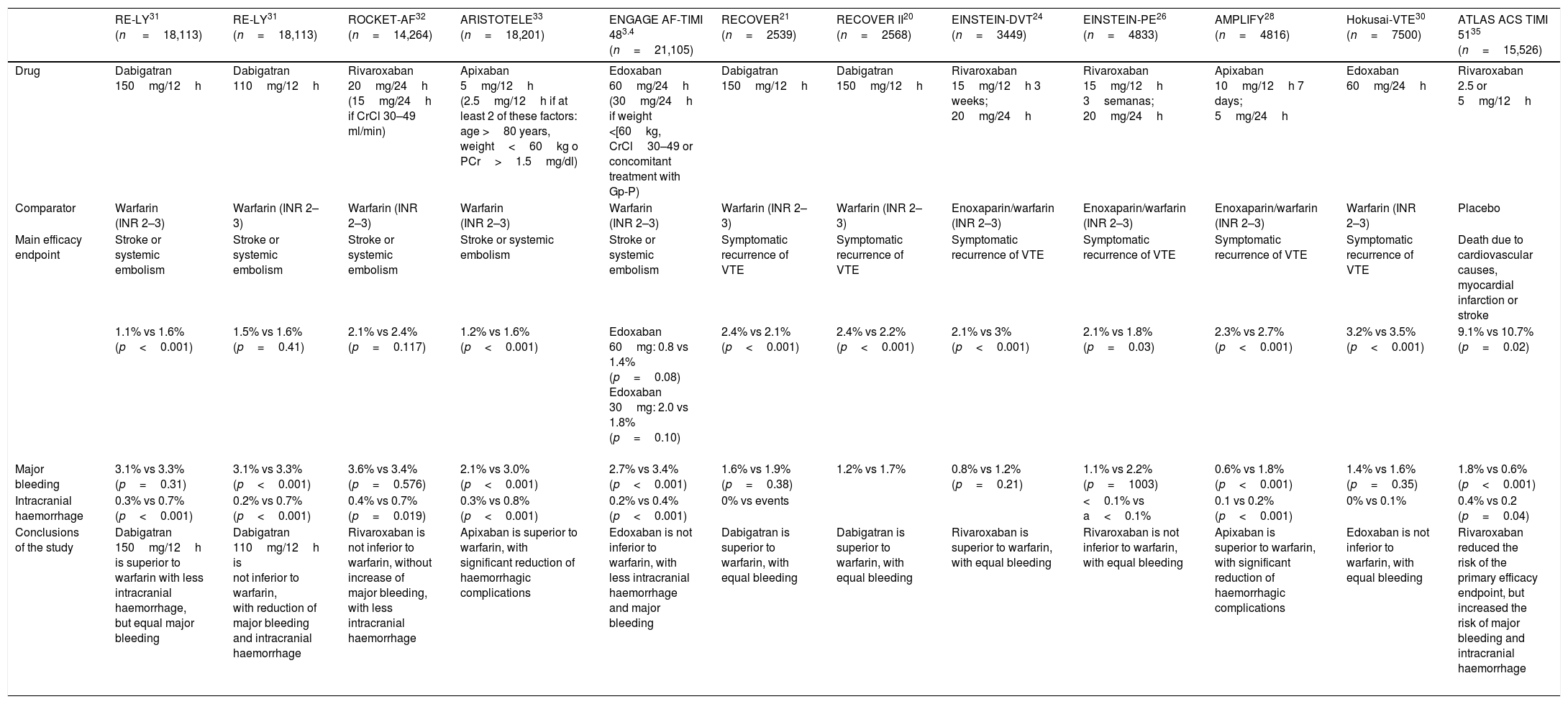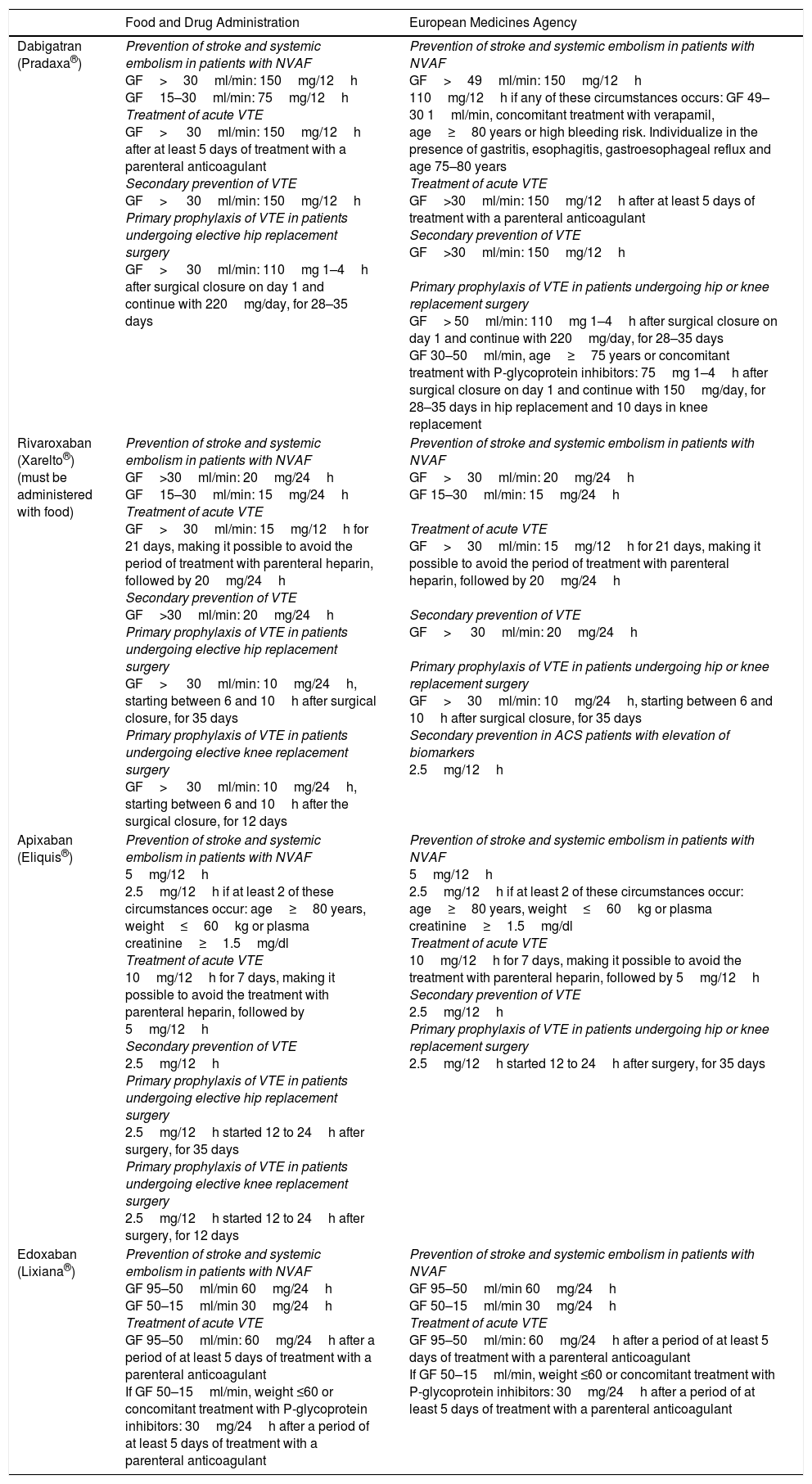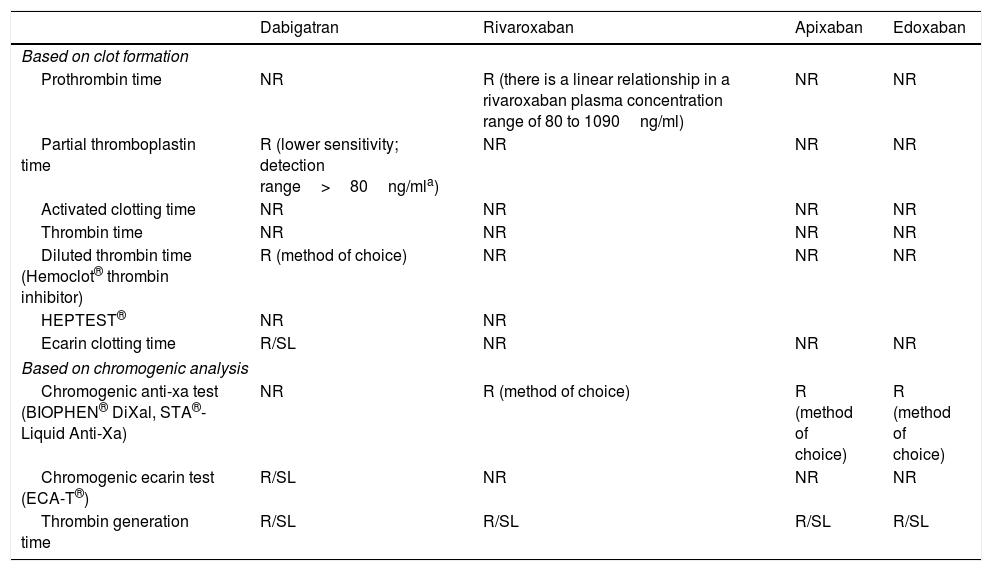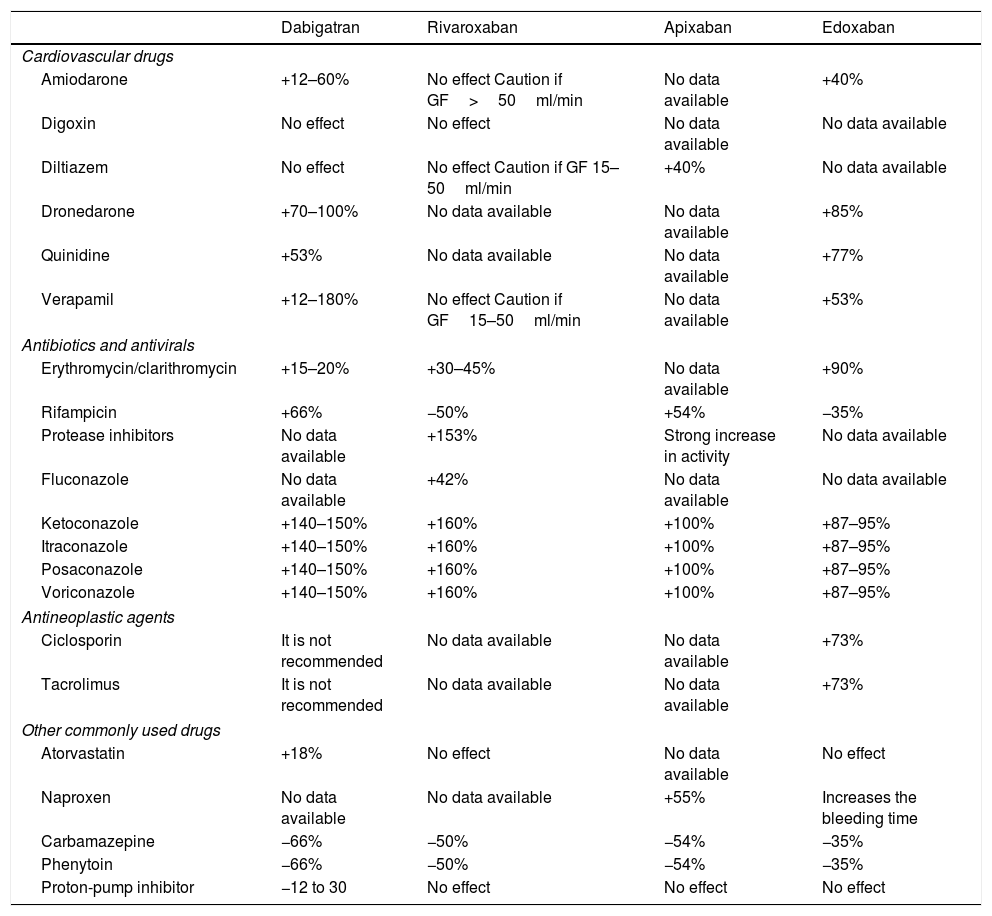Vitamin K antagonists were the only choice for chronic oral anticoagulation for more than half a century. Over the past few years, direct oral anticoagulants have emerged, including one direct thrombin inhibitor (dabigatran etexilate) and three factor Xa inhibitors (apixaban, edoxaban and rivaroxaban). In randomized controlled trials comparing direct oral anticoagulants with traditional vitamin K antagonists, the direct oral anticoagulants all showed a favourable benefit-risk balance in their safety and efficacy profile, in prevention of thromboembolic events in patients with atrial fibrillation and in the prevention and treatment of venous thromboembolism and acute coronary syndrome. In 2008, dabigatran was the first direct oral anticoagulant approved by the European Medicine Agency. Subsequently, rivaroxaban, apixaban and edoxaban were also authorized. This article reviews the evidence related to the use of these drugs.
Durante medio siglo los antagonistas de la vitamina K han sido la única opción disponible para la terapia anticoagulante oral. En los últimos años se han desarrollado anticoagulantes orales directos: un inhibidor directo de la trombina (dabigatrán etexilato) y 3 inhibidores directos del factor X activado (rivaroxabán, apixabán y edoxabán). Todos ellos han demostrado un beneficio-riesgo favorable, comparables en eficacia y seguridad a los anticoagulantes tradicionales antagonistas de la vitamina K, en la prevención del ictus y la embolia sistémica en pacientes con fibrilación auricular no valvular, la profilaxis y el tratamiento del tromboembolismo venoso y el síndrome coronario agudo. En 2008 la Agencia Europea del Medicamento aprobó el primer anticoagulante oral directo, dabigatrán. Posteriormente, rivaroxabán, apixabán y edoxabán fueron autorizados. En este artículo se revisa la experiencia acumulada con cada uno de estos fármacos.











